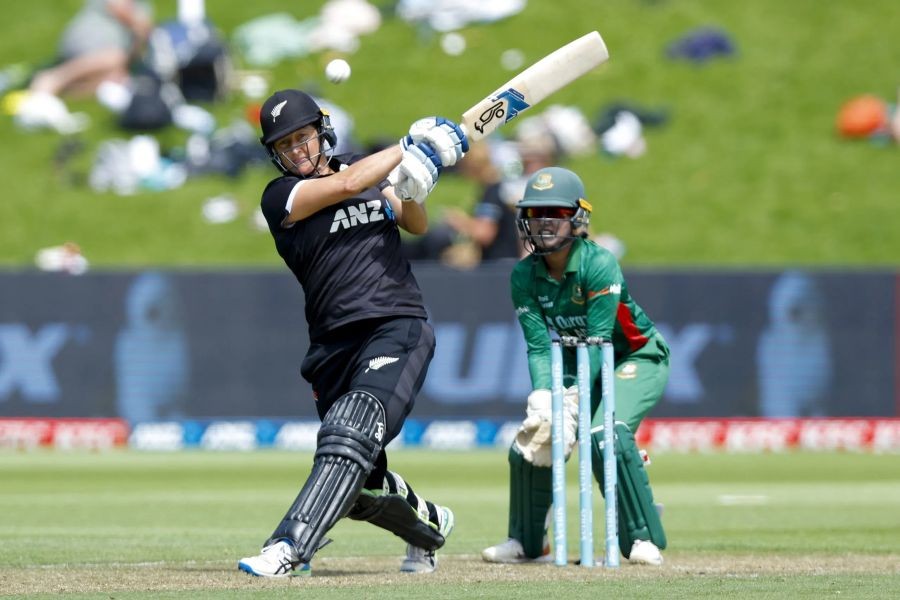Introduction
In recent years, the world of cricket has witnessed a fascinating shift as women's cricket has begun to capture significant attention, challenging the long-standing dominance of men's cricket. This shift is particularly noticeable in Australia, a country with a rich cricketing heritage. But who is truly dominating more? Is it the women, with their rapid rise and growing fan base, or the men, with their established legacy and substantial commercial backing? In this article, we delve into the dynamics of women's and men's cricket, exploring their impacts on the sport as a whole, and specifically within the Australian context.
Rising Popularity of Women's Cricket
Women's cricket has seen a remarkable surge in popularity over the last decade. This can be attributed to several factors, including increased media coverage, enhanced investment, and the emergence of role models who have inspired younger generations. The Women's Big Bash League (WBBL) in Australia serves as a prime example. Since its inception in 2015, the WBBL has become one of the premier domestic T20 leagues globally, drawing substantial viewership numbers and sponsorship deals.
The Australian women's national team, known as the Southern Stars, further bolsters this growth. With their consistent performance on the world stage, they have won multiple ICC Women's World Cups and ICC Women's T20 World Cups, showcasing the strength and talent present in women's cricket. According to a report by the Australian Bureau of Statistics (ABS), participation in women's cricket grew by 17% from 2019 to 2023, reflecting a broader trend of increasing female engagement in sports.
Case Study: Southern Stars' Impact
The Southern Stars' success has not only elevated the status of women's cricket in Australia but also contributed significantly to its commercial viability. In 2022, when they secured their seventh ICC Women's World Cup title, the viewership numbers soared to new heights, with over 1.2 million Australians tuning in to watch the finals live. This success has prompted Cricket Australia to invest more in women's cricket, increasing salaries and providing better training facilities to nurture future talent.
The Enduring Legacy of Men's Cricket
On the other side of the spectrum, men's cricket in Australia continues to enjoy a well-established legacy. The Australian men's cricket team boasts a rich history, with an impressive record in Test cricket, One Day Internationals, and T20 Internationals. Their achievements include multiple Ashes series victories and ICC Cricket World Cup triumphs.
However, the men's game faces its own set of challenges. The pressure to maintain high standards and the constant scrutiny from media and fans can sometimes overshadow their accomplishments. Nevertheless, the commercial appeal of men's cricket remains strong, supported by lucrative broadcasting deals and sponsorships.
Case Study: The Ashes Series
The Ashes series between Australia and England is one of the most celebrated rivalries in cricket. The 2023 series saw record-breaking attendance, with over 90,000 fans filling the Melbourne Cricket Ground on Boxing Day. The series generated significant revenue for Cricket Australia, highlighting the enduring commercial viability of men's cricket.
Economic Impact and Commercial Viability
The economic impact of cricket, both men's and women's, is substantial in Australia. According to the Reserve Bank of Australia (RBA), the sports industry contributes significantly to the national GDP. Cricket Australia, as the governing body, plays a crucial role in driving this economic contribution through strategic partnerships and broadcasting rights.
Women's cricket, despite its rapid growth, still lags behind men's cricket in terms of revenue generation. However, the gap is narrowing. The 2020 ICC Women's T20 World Cup final, held at the Melbourne Cricket Ground, attracted a record crowd of over 86,000 spectators and was broadcast to millions worldwide, generating significant commercial interest.
Pros and Cons Analysis
Pros of Women's Cricket:
- Growing Audience: Women's cricket is attracting a diverse and expanding audience.
- Increased Investment: More sponsors are investing in women's teams and leagues.
- Role Models: Female cricketers are becoming inspirational figures, encouraging young girls to participate in sports.
Cons of Women's Cricket:
- Revenue Disparity: Women's cricket still generates less revenue compared to men's cricket.
- Limited Media Coverage: Despite improvements, media coverage is not yet on par with the men's game.
Future Trends and Predictions
Looking ahead, the future of cricket in Australia appears promising for both men and women. The women's game is expected to continue its upward trajectory, with more investment and a growing fan base. By 2030, it is predicted that women's cricket could achieve near parity with men's cricket in terms of viewership and sponsorships.
Men's cricket, while maintaining its commercial dominance, may face challenges in engaging younger audiences who are increasingly drawn to shorter formats and digital platforms. Innovations such as AI and data analytics could play a pivotal role in enhancing fan engagement and improving players' performance.
Common Myths and Mistakes
Myth: Men's cricket is inherently more exciting than women's cricket.
Reality: Excitement is subjective, and women's cricket offers thrilling matches with close finishes and outstanding performances.
Myth: Women's cricket lacks commercial viability.
Reality: The growing investment and sponsorships in women's cricket prove its commercial potential.
Myth: Women's cricket is not as competitive as men's cricket.
Reality: The skill and competitiveness in women's cricket are on par with the men's game, with several closely contested matches.
Final Takeaways
- Women's cricket in Australia is experiencing rapid growth, driven by increased investment and fan engagement.
- Men's cricket maintains its commercial dominance, but faces challenges in engaging younger audiences.
- Both men's and women's cricket contribute significantly to the Australian economy.
- Future trends suggest that women's cricket could achieve near parity with men's cricket in terms of commercial viability.
In conclusion, while men's cricket continues to dominate commercially, women's cricket is rapidly catching up, offering exciting opportunities for growth and investment. As the dynamics of cricket evolve, it is essential for stakeholders to support both formats to ensure the sport's continued success and inclusivity in Australia.
People Also Ask (FAQ)
How has women's cricket impacted Australia's sports industry?
Women's cricket has significantly increased participation and viewership, contributing to a more inclusive sports culture in Australia. With rising investments, it has also boosted the sports economy.
What are the biggest misconceptions about women's cricket?
One common myth is that women's cricket lacks competitiveness. However, data and expert opinions show that women's matches are highly competitive and skillful.
What is the future of cricket in Australia?
By 2030, women's cricket is expected to achieve near parity with men's cricket in terms of viewership and sponsorships, driven by increased investment and fan engagement.
Related Search Queries
- Women's cricket vs. men's cricket popularity
- Impact of women's cricket in Australia
- Economic contribution of cricket to Australia's GDP
- Future of women's cricket in Australia
- Challenges faced by men's cricket in Australia
- Case studies of successful women's cricket teams
- Trends in cricket viewership in Australia
- Role of media in promoting women's cricket
- How cricket impacts Australia's sports industry
- Investments in women's cricket leagues
By understanding the dynamics of women's and men's cricket, stakeholders can make informed decisions to support the sport's growth and inclusivity in Australia. Join the conversation and share your thoughts on how cricket can continue to evolve in the coming years!




































MckenzieMc
6 months ago